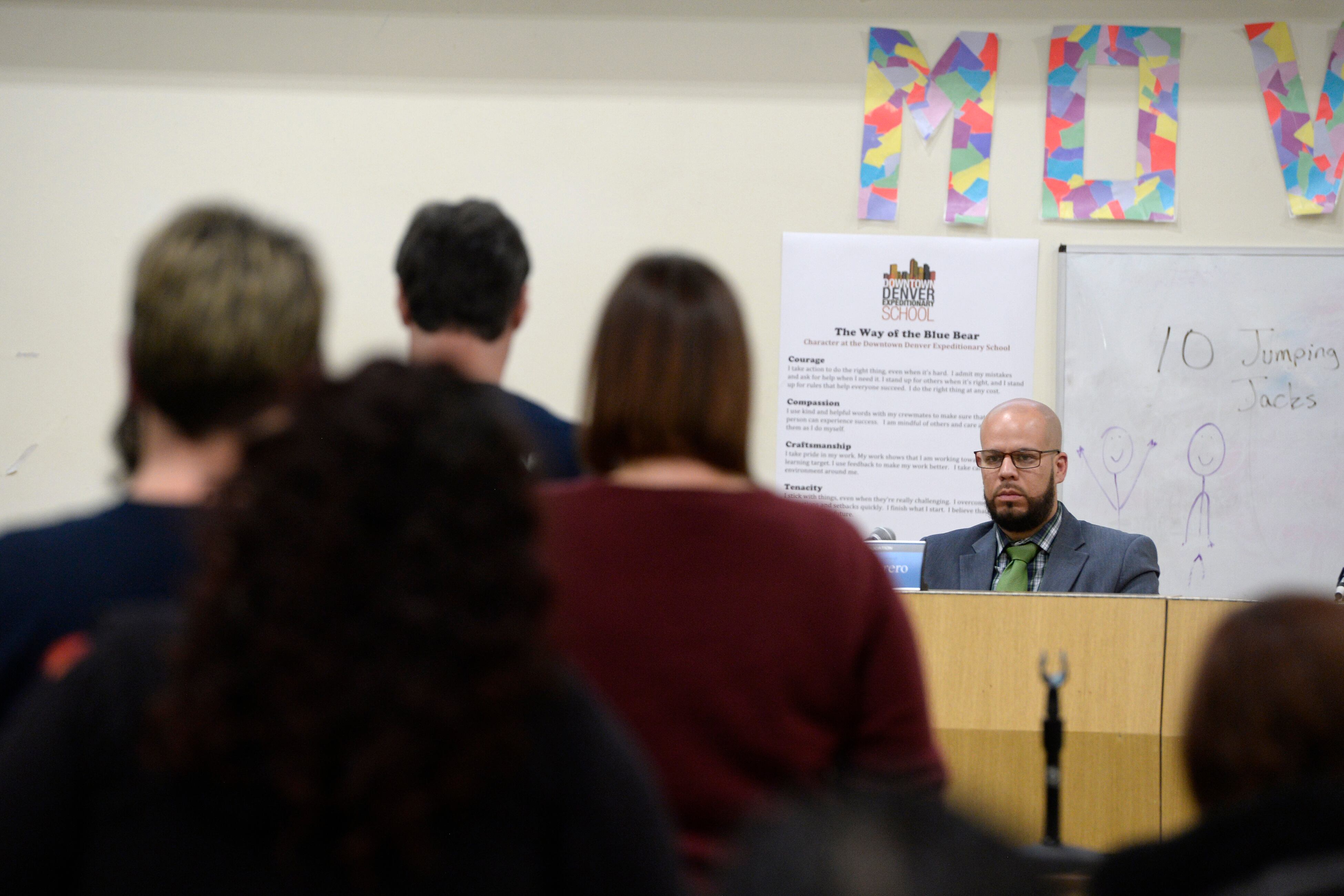Sign up for Chalkbeat Colorado’s free daily newsletter to get the latest reporting from us, plus curated news from other Colorado outlets, delivered to your inbox.
The Denver school board last week passed a policy prohibiting the school district’s attorney from representing the board or the superintendent in legal matters between the two.
For example, the board and Superintendent Alex Marrero may each have to hire their own outside attorneys when negotiating Marrero’s contract or evaluating his performance. The board approved its latest evaluation of Marrero last week after it extended his contract in May.
Board member Kimberlee Sia, who wrote the policy, said the goal is to avoid any conflicts of interest since the board is the boss of the superintendent and the superintendent is the boss of Denver Public Schools’ general counsel.
An earlier draft of the policy would have ordered the general counsel to provide the school board with a list of lawsuits DPS is involved in and a tally of how much it spends on external legal costs.
That requirement was stripped out because the board isn’t allowed to give orders to the general counsel, Sia said. The only person the board can give orders to is the superintendent. But to do that, the board would have to pass a type of policy called an “executive limitation.” The legal counsel policy is a different type called a “governance process policy.”
These rules and jargon are part of policy governance, which is the governance structure the board uses. A previous board adopted it in 2021 to help attract a new superintendent after some board members were accused of micromanaging the previous one.
But policy governance has proven controversial at times.
Sia said she may propose an executive limitation that would compel the district to disclose information about its lawsuits and legal costs because “it is still something that people ask about.”
The new legal policy, officially called Governance Process Policy 18, says most legal issues should be handled by the district’s general counsel. But when it comes to the superintendent’s evaluation or contract negotiations, the board may choose to hire an outside attorney.
The board can hire or fire an outside attorney with a majority vote, the policy says. The board president is responsible for directing the outside attorney. Three or more board members can also make a request of the outside attorney in writing.
The policy passed in a 5-1 vote Thursday. Board member Xóchitl “Sochi” Gaytán was the sole no vote. Gaytán had previously raised concerns that the policy would displace the district’s current attorneys, who she noted are people of color.
Melanie Asmar is the bureau chief for Chalkbeat Colorado. Contact Melanie at masmar@chalkbeat.org.







